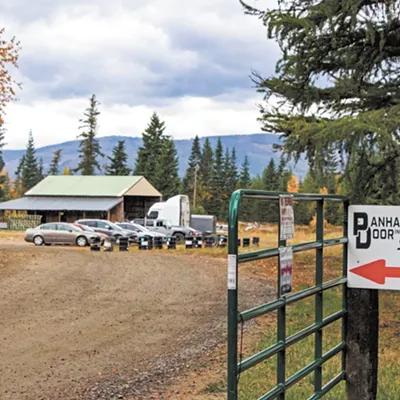Friday is Endangered Species Day and the U.S. Fish and Wildlife Service is hosting celebrations across the country.
In honor of this special day, here’s a pop quiz: You are walking in the woods and see a gray wolf. Do you hug it? Shoot it? Or shake your fist at an eco-attorney?
Sometimes it seems these are the only choices, given the rhetoric around the wolf. The gray wolf in the Northern Rocky Mountains has just been removed from the endangered species list via a clever maneuver in a budget bill in D.C. It’s the first time that’s been done since the list was created in the 1970s. Immediately, Montana and Idaho game agencies announced hunting seasons on wolves for this fall.
Since wolves were introduced into the Northern Rockies — the recovery zone includes the eastern third of Washington — the population has gone from roughly zero to an estimated 1,600. They were officially “recovered” in 2009.
Elk hunters, ranchers and others are hoppin’ mad that environmental groups successfully sued in 2010 to get wolves back on the endangered list. They cheer last month’s stealth “policy rider,” crafted by Rep. Mike Simpson, R-Idaho, and
Sen. Jon Tester, D-Montana, that not only took the wolves back off the list, but also ordered the courts to butt out.
Following suit, Interior Secretary Ken Salazar hailed the recovery of the gray wolf two weeks ago, and four conservation groups filed suit the very next day.
Jay Tutchton, the lead attorney in the latest lawsuit, says the policy rider violates Article III of the Constitution on the separation of powers between the three branches of government.
“If we get into a situation where Congress chooses the winner in a court of law, the courts have lost their function,” he says.
We tracked down Tutchton, a hunter-turnedvegan, via cell phone recently to discuss the Civil War, NPR and, of course, wolves.
INLANDER: Can Congress do what Congress did?
TUTCHTON: The point of our lawsuit is, no, they cannot. We believe it violates the separation-of-powers doctrine. The rider merely reverses one lawsuit and doesn’t change the law in any other respect. That has been unconstitutional since shortly after the Civil War. Legislatures can always change laws. But here they overturned a judge’s decision, but did not change the law. That’s the key part.
Does this now allow Congress to fiddle with the endangered species list?
That window has always been there, and Congress has used it in the past. In 1970, there was the famous litigation over the snail darter. Congress, in a budget bill, approved the construction of the dam. In that case the order to build the dam was the damning of the species. The wolf rider is unique in that it is the first legislative delisting of a species.
It’s a crummy way to run a country, but unfortunately the sticking of little deals into a budget is a time-honored method.
But does this mean 535 Congressmen can micromanage the Endangered Species Act?
That’s the risk. I think why the wolf rider went through is because it had a Democratic sponsor as well as Republican support. This was very clever in one sense, but also destructive because [the delisting of wolves] didn’t get debated. I think we’ve lost something when we embolden politicians to look for clever techniques [rather than open debate]. I’m not a Washington insider, but I think Congress threw the wolves under the bus for NPR funding or to help Tester’s reelection. Say something catastrophic happens. Does the rider prevent wolves from ever regaining ESA protections?
The rider prohibits judicial review of the wolf-delisting rule. So the elements of the delisting rule — such as relisting if the population goes down to 450 wolves — can only be considered by the government. [In this case the U.S. Fish and Wildlife Service.]
Where did you file suit?
We
filed in federal court in Missoula in front of the same judge the
government reversed, [U.S. District Court Judge Donald Molloy]. The
judge is moving very rapidly: Briefs are due by the end of May and the
suit will be fully briefed by the end of June. He is an extremely
hard-working judge and is well versed [on wolf reintroduction]. We felt
this was the appropriate place to continue this debate in the judicial
system.




















